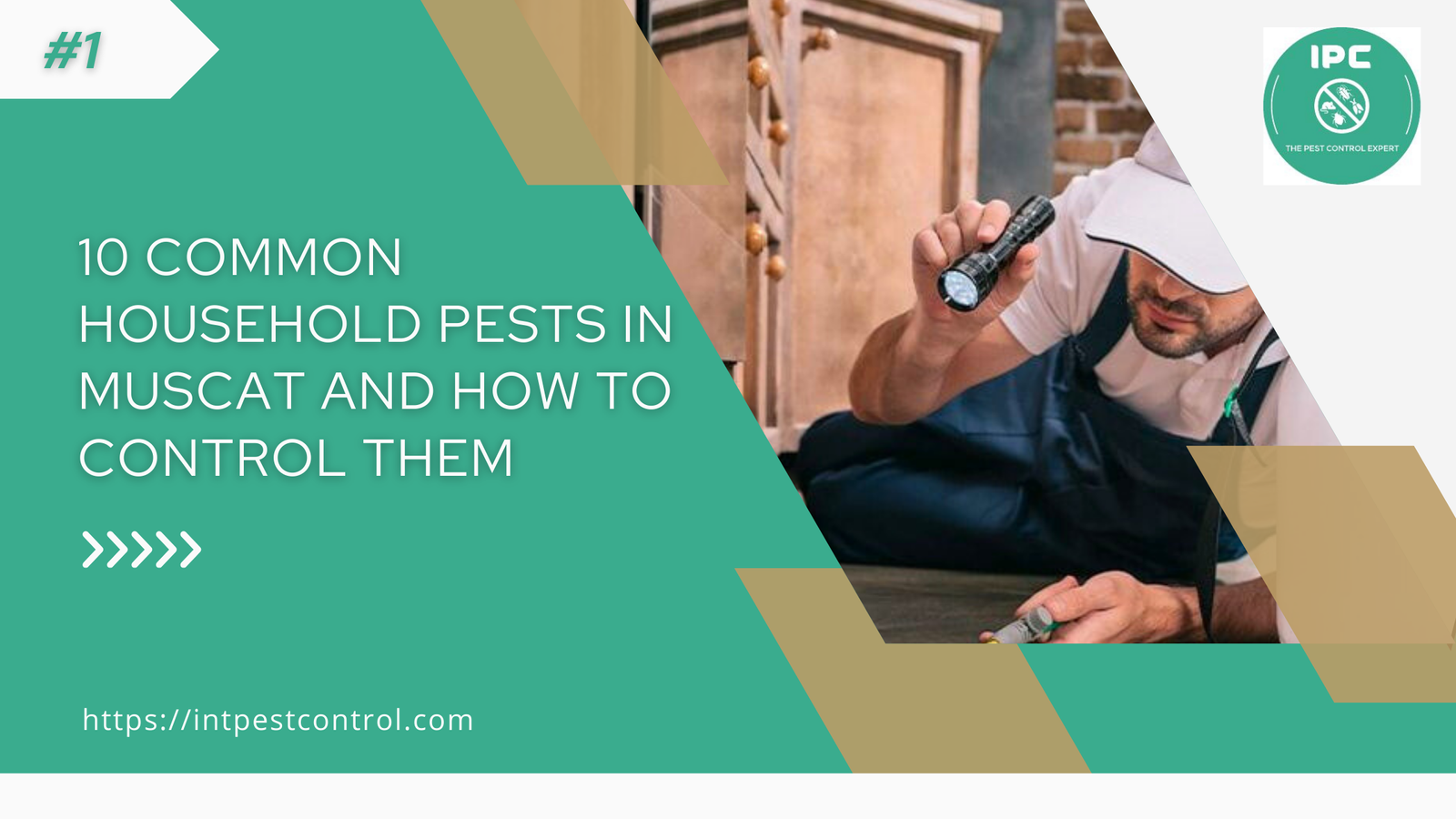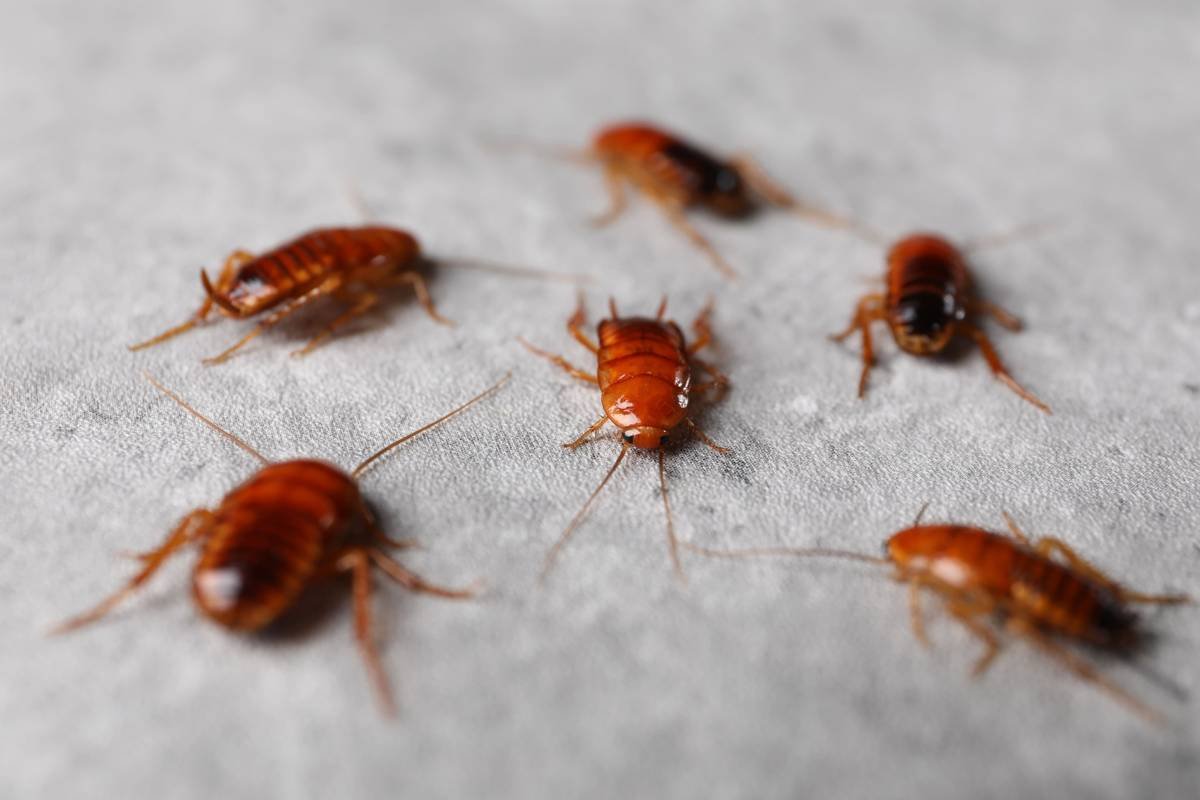- +968 7885 5880
- +968 7154 5907
- info@Intpestcontrol.com
Admin
August 25, 2025

Imagine waking up to tiny invaders marching across your kitchen counters or finding mysterious bites along your bed sheets. If you’re a homeowner in Muscat, you’re likely familiar with this uneasy feeling. Household pests in Muscat aren’t just a nuisance—they’re a reality we need smart solutions for.
In this post, we’re diving deep into the 10 most common household pests troubling Muscat residents and sharing actionable, well-researched—I’ve even included a few stories of real Muscat households—to help you reclaim comfort and peace.

Why they thrive: The desert heat drives them indoors in search of moisture and food. Multiple species like black and red ants are active year-round.
Control tips: Seal cracks, store food in airtight containers, use bait stations that carry toxins back to the colony, and apply natural repellents like peppermint oil.
Why they thrive: These resilient insects flourish in warm, humid interior spaces. American, German, and Oriental cockroaches are frequently reported.
Control tips: Maintain strict hygiene, fix water leaks, set gel baits or boric acid dust in hidden corners, and consider professional fumigation if infestation is severe.
Why they thrive: Food scraps and accessible shelter encourage rodent activity. They’re known for property damage and disease spread.
Control tips: Seal entry points, use snap or humane traps, and invest in safe bait boxes. Remove clutter and store food securely.
Why they thrive: Standing water—even in small containers—turns into mosquito breeding grounds.
Control tips: Eliminate standing water, install screens on windows, use citronella candles or oils, and deploy traps or insecticide-treated materials when needed.
Why they thrive: These hitchhikers latch onto clothing or luggage—thriving undetected until the bite marks appear.
Control tips: Wash and heat-dry linens weekly, vacuum mattress crevices, use covers, and seek professional heat treatment or targeted sprays.
Why they thrive: Muscat’s wooden furniture and occasional moisture attract subterranean termites that can weaken structures silently.
Control tips: Inspect for mud tubes, treat soil barriers with termiticides, use baiting systems, and replace damaged wood.
Why they thrive: These natural predators enter in search of insects. Generally harmless, but their webs can be alarming.
Control tips: Regularly dust corners and ceilings, seal gaps, reduce clutter, and use natural deterrents like citrus-scented cleaners.
Why they thrive: A fly is drawn to trash, uncovered food, and warm weather.
Control tips: Keep trash sealed, clean drains, use fly screens, and consider UV fly traps for kitchens.
Why they thrive: The dry climate and grain-based foods create ideal conditions for silverfish and pantry invaders like flour beetles.
Control tips: Store dry goods in sealed containers, use bay leaves as natural deterrents, and periodically freeze or discard infested items.
While not harmful and often considered helpful (they eat insects), geckos can raise concerns at night.
Local context equals better results: Humid coastal weather and cultural food habits make pests like cockroaches, ants, and mosquitoes particularly troublesome.
Prevention beats reaction: Investing in home sealing and hygiene can dramatically reduce infestations and save cost/time.
Know when to escalate: Light pest presence? Tackle with DIY. Structural or fast-spreading issues? Call a certified service like International Pest Control Service Management.
Natural methods matter: Using oils or deterrent plants is family-friendly and surprising effective in many cases, with minimal side effects.
Living in Muscat means coexisting with certain pests—but awareness, prevention, and strategic action make all the difference. From back-porch ants to sneaky pantry bugs, a little effort goes a long way in preserving a safe, peaceful home.
Inspect your home for common entry points.
Try one natural repellent method this week.
Share your own Muscat pest story—what worked (or didn’t)?
Subscribe or explore our related posts for deeper DIY pest prevention guides.
Let’s transform pest struggles into smart solutions together—one home at a time!